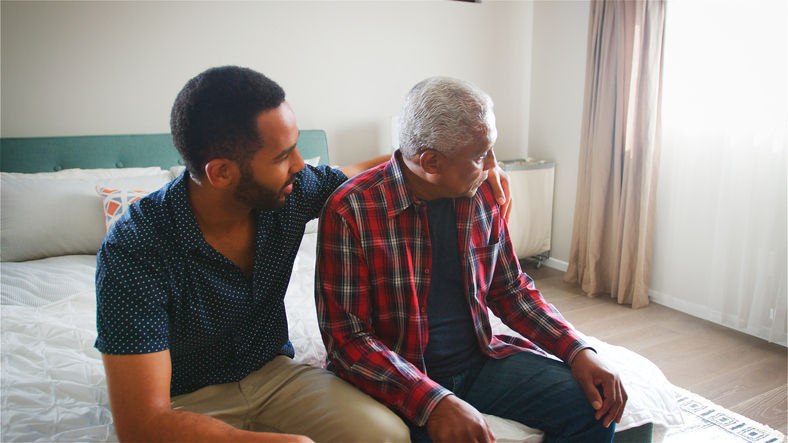CMS Announces New Measures to Protect Nursing Home Residents from COVID-19
- Elder Care Law Blogger
- Mar 16, 2020
- 3 min read
Updated: Oct 6, 2022

On Friday, March 13, 2020, the Centers for Medicare & Medicaid Services (CMS) announced critical new measures designed to keep America’s nursing home residents safe from the 2019 Novel Coronavirus (COVID-19). The measures are based on the newest recommendations from the Centers for Disease Control and Prevention (CDC).
If someone you love is living in a nursing home, you’re likely to feel the effects of this directive.
For one, nursing homes are being directed to significantly restrict visitors and nonessential personnel, as well as restrict communal activities inside nursing homes. The new measures are CMS’s latest action to protect America’s seniors, who are at highest risk for complications from COVID-19. While visitor restrictions may be difficult for residents and families, it is an important temporary measure for their protection.
The new measures constitute the agency’s most aggressive and decisive recommendations with respect to nursing home safety in the face of the spread of COVID-19. They include:
Restricting all visitors, effective immediately, with exceptions for compassionate care, such as end-of-life situations
Restricting all volunteers and nonessential health care personnel and other personnel (i.e. barbers)
Cancelling all group activities and communal dining
Implementing active screening of residents and health care personnel for fever and respiratory symptoms.
The guidance directs nursing homes to restrict visitation except in certain compassionate cases, like end-of-life. In those cases, visitors will be equipped with personal protective equipment (PPE) like masks, and the visit will be limited to a specific room only.
CMS’s guidance is based upon CDC recommendations informed by real-time information being gathered from experts on the ground in areas with large numbers of COVID-19 cases, like Washington and California. According to CDC, seniors with multiple health conditions are at highest risk for complications. With large congregations of that particularly vulnerable population, nursing homes are extremely susceptible to quick spread of the virus. There have already been reports of large numbers of cases of COVID-19 spreading quickly through nursing homes, such as the Life Care Center in Kirkland, Washington. The spread of COVID-19 in a nursing home can amplify or seed further spread to other facilities when patients are transferred and when staff and visitors come and go. According to CDC, visitors and health care personnel who are ill are the most likely source of introduction of COVID-19 into nursing homes, necessitating today’s change in guidance to restrict visitors and personnel.
Nursing homes are expected to notify potential visitors to defer visitation until further notice through signage and other outreach, such as emails and phone calls. In lieu of visits, CMS is encouraging nursing homes to facilitate increased virtual communication between residents and families. This may include phone calls as well as calls over video apps such as FaceTime, Google Duo, Skype, and Zoom.
CMS is also advising nursing homes to keep residents’ loved ones informed about their care. Some facilities have even gone as far as assigning staff members dedicated to serving as a primary contact for families to facilitate two-way communications about the resident’s status.
If you are permitted to visit your loved one in a nursing home, check to see if the facility has implemented the following precautionary measures, all of which have been recommended by the CDC:
Alcohol-based hand sanitizer with 60-95 percent alcohol should be available in every resident room – both inside and outside the room if possible – and in every common area.
Sinks should be well-stocked with soap and paper towels for hand washing.
Tissues and facemasks should be made available for people who are coughing.
Personal protective equipment should be available to everyone entering areas of the facility where resident care is provided.
Hospital grade disinfectants should be made available to allow for frequent cleaning of high-touch surfaces and shared resident equipment.
Find a full list of CDC guidance to nursing homes here.
To keep up with the important work the Task Force is doing in response to COVID-19 click here www.coronavirus.gov. For information specific to CMS, please visit the Current Emergencies Website.







My husband was diagnosed with Parkinson’s Disease (PD) four years ago. For over two years, we relied on prescription medications and therapies, but unfortunately, his symptoms continued to worsen. His memory, coordination, and overall strength declined, and everyday life became increasingly difficult.Last year, out of desperation and hope, we decided to try an herbal treatment program from NaturePath Herbal Clinic. Honestly, we were skeptical at first, but within a few months of starting the treatment, we began to notice real changes. His alertness improved, his movements became steadier, and he regained a surprising amount of energy and clarity.Incredibly, he also regained much of his independence and confidence. It’s been a life-changing experience he feels more like himself again, better than…